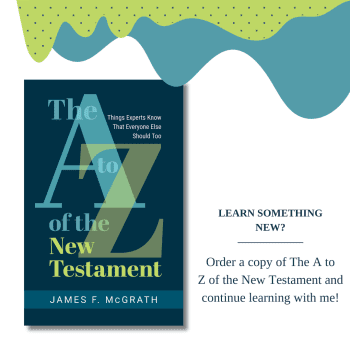Mark Goodacre posted on the scholarly construct Q, and highlights the difference between that and a lost Gospel, one that we knew from its being mentioned in ancient texts existed, but it no longer does. He nicely relates this to the rediscovery of two Doctor Who episodes from the Patrick Troughton era.
Of course, if you identify Q with a text that is so mentioned – such as Matthew’s logia, or as a Greek text which was mistakenly thought to have been translated independently from a Hebrew Gospel of Matthew – then the two may converge.
Mark also mentioned Marcus Borg, who recently began blogging at Patheos. Borg has written a book with the title The Lost Gospel Q. But he also focuses a lot of attention on another “lost gospel” (with a lower-case “g”): the Christian message understood mystically rather than in the manner of modern-day fundamentalists.
Bruce Gerencser wrote about another lost gospel, the “fluffy” one. While he writes that the earliest Christians “were much closer to the fundamentalist form of Christianity than the “fluffy” form” the truth is that as far back as we can trace Christianity, there have been liberals and conservatives – people who could not allow Biblical commands like circumcision to be set aside, and people who embraced the acceptance of foreigners, some who said that there was basically nothing new in Jesus (it was just Torah strengthened and emphasized), and others who thought that Jesus put people in encounter with a divine reality that would continue to reveal new and surprising things to them. The rigid and the fluffy are both part of our heritage.
One final lost Gospel connection: I had the privilege of hearing the Indianapolis Symphony Orchestra and the Indianapolis Symphonic Choir perform Verdi’s Requiem. In the program notes I discovered that the mezzo-soprano soloist, Sasha Cooke, has also been performing the lead role in Mark Adorno’s opera, The Gospel According to Mary Magdalene!













